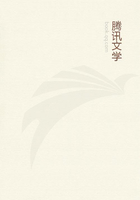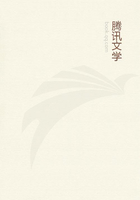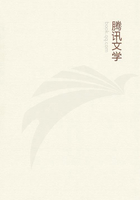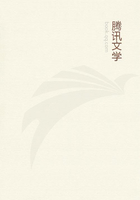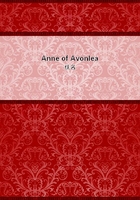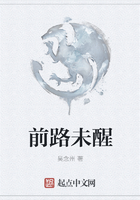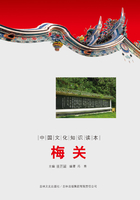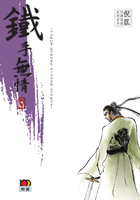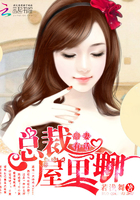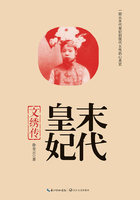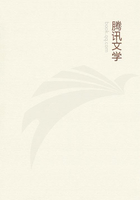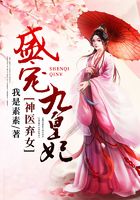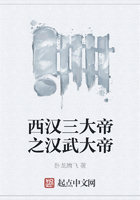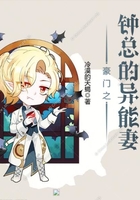To the question, 'Is one man's gain another man's loss?' he answered 'Not in every case.' He attacked Darwin's theory of development, and showed its inadequacy, especially in demanding more time than the physicist could grant for the age of the habitable world. Darwin himself confessed that some of his arguments were convincing; and Munro, the scholar, complimented him for his paper on Lucretius and the Atomic Theory.' In 1878 he constructed a phonograph from the newspaper reports of this new invention, and lectured on it at a bazaar in Edinburgh, then employed it to study the nature of vowel and consonantal sounds. An interesting paper on Rhythm in English Verse,' was also published by him in the SATURDAY REVIEW for 1883.
He was clever with his pencil, and could seize a likeness with astonishing rapidity. He has been known while on a cable expedition to stop a peasant woman in a shop for a few minutes and sketch her on the spot. His artistic side also shows itself in a paper on 'Artist and Critic,' in which he defines the difference between the mechanical and fine arts. 'In mechanical arts,' he says, 'the craftsman uses his skill to produce something useful, but (except in the rare case when he is at liberty to choose what he shall produce) his sole merit lies in skill.
In the fine arts the student uses skill to produce something beautiful.
He is free to choose what that something shall be, and the layman claims that he may and must judge the artist chiefly by the value in beauty of the thing done. Artistic skill contributes to beauty, or it would not be skill; but beauty is the result of many elements, and the nobler the art the lower is the rank which skill takes among them.'
A clear and matter-of-fact thinker, Jenkin was an equally clear and graphic writer. He read the best literature, preferring, among other things, the story of David, the ODYSSEY, the ARCADIA, the saga of Burnt Njal, and the GRAND CYRUS. Aeschylus, Sophocles, Shakespeare, Ariosto, Boccaccio, Scott, Dumas, Dickens, Thackeray, and George Eliot, were some of his favourite authors. He once began a review of George Eliot's biography, but left it unfinished. Latterly he had ceased to admire her work as much as before. He was a rapid, fluent talker, with excited utterance at times. Some of his sayings were shrewd and sharp; but he was sometimes aggressive. 'People admire what is pretty in an ugly thing,' he used to say 'not the ugly thing.' A lady once said to him she would never be happy again. 'What does that signify?' cried Jenkin ;'we are not here to be happy, but to be good.' On a friend remarking that Salvini's acting in OTHELLO made him want to pray, Jenkin answered, 'That is prayer.'
Though admired and liked by his intimates, Jenkin was never popular with associates. His manner was hard, rasping, and unsympathetic. 'Whatever virtues he possessed,' says Mr. Stevenson, 'he could never count on being civil.' He showed so much courtesy to his wife, however, that a Styrian peasant who observed it spread a report in the village that Mrs.
Jenkin, a great lady, had married beneath her. At the Saville Club, in London, he was known as the 'man who dines here and goes up to Scotland.' Jenkin was conscious of this churlishness, and latterly improved. 'All my life,' he wrote,'I have talked a good deal, with the almost unfailing result of making people sick of the sound of my tongue.
It appeared to me that I had various things to say, and I had no malevolent feelings; but, nevertheless, the result was that expressed above. Well, lately some change has happened. If I talk to a person one day they must have me the next. Faces light up when they see me.
"Ah! I say, come here." " Come and dine with me." It's the most preposterous thing I ever experienced. It is curiously pleasant.'
Jenkin was a good father, joining in his children's play as well as directing their studies. The boys used to wait outside his office for him at the close of business hours; and a story is told of little Frewen, the second son, entering in to him one day, while he was at work, and holding out a toy crane he was making, with the request, 'Papa you might finiss windin' this for me, I'm so very busy to-day.' He was fond of animals too, and his dog Plate regularly accompanied him to the University. But, as he used to say, 'It's a cold home where a dog is the only representative of a child.'
In summer his holidays were usually spent in the Highlands, where Jenkin learned to love the Highland character and ways of life. He was a good shot, rode and swam well, and taught his boys athletic exercises, boating, salmon fishing, and such like. He learned to dance a Highland reel, and began the study of Gaelic; but that speech proved too stubborn, craggy, and impregnable even for Jenkin. Once he took his family to Alt Aussee, in the Stiermark, Styria, where he hunted chamois, won a prize for shooting at the Schutzen-fest, learned the dialect of the country, sketched the neighbourhood, and danced the STEIERISCH and LANDLER with the peasants. He never seemed to be happy unless he was doing, and what he did was well done.
Above all, he was clear-headed and practical, mastering many things; no dreamer, but an active, business man. Had he confined himself to engineering he might have adorned his profession more, for he liked and fitted it; but with his impulses on other lines repressed, he might have been less happy. Moreover, he was one who believed, with the sage, that all good work is profitable, having its value, if only in exercise and skill.
His own parents and those of his wife had come to live in Edinburgh ;but he lost them all within ten months of each other. Jenkin had showed great devotion to them in their illnesses, and was worn out with grief and watching. His telpherage, too, had given him considerable anxiety to perfect; and his mother's illness, which affected her mind, had caused himself to fear.
He was meditating a holiday to Italy with his wife in order to recuperate, and had a trifling operation performed on his foot, which resulted, it is believed, in blood poisoning. There seemed to be no danger, and his wife was reading aloud to him as he lay in bed, when his intellect began to wander. It is doubtful whether he regained his senses before he died, on June 12, 1885.
At one period of his life Jenkin was a Freethinker, holding, as Mr.
Stevenson says, all dogmas as 'mere blind struggles to express the inexpressible.' Nevertheless, as time went on he came back to a belief in Christianity. 'The longer I live,' he wrote, 'the more convinced Ibecome of a direct care by God--which is reasonably impossible--but there it is.' In his last year he took the Communion.

